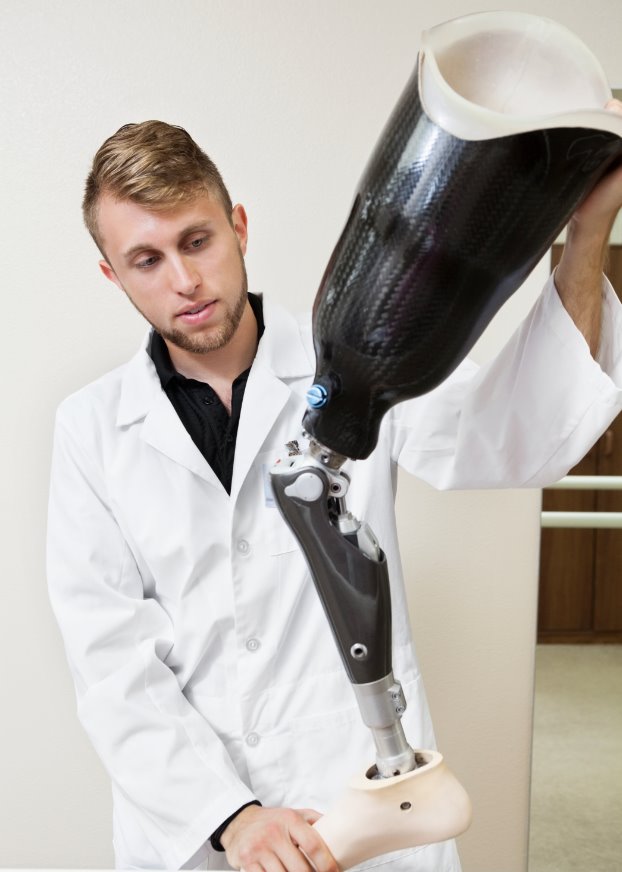Amputations from a Work Accident
April 18, 2023 | Accidents
Workers’ compensation is designed to provide workers that suffer injuries due to a work-related accident a financial cushion during the difficult period following the injury. Workers’ compensation covers the cost of medical treatment and rehabilitation as well as a portion of the injured worker’s wages for the period that they are unable to work due to recovery or disability resulting from the accident. The amount that the worker is paid as disability benefits depends on the percentage of disability assigned to them by their physician.
Technology advancements over the past few years have resulted in the availability of hi-tech prosthetics. These prosthetics are designed to restore functionality and aesthetics. However, accessing these prosthetics can be very costly. It is therefore not surprising that many workers are concerned about whether they can access these devices and if workers’ compensation will cover the cost.
The Purpose of Prosthetic Devices after Amputation
Not everyone that has an amputation can benefit from having a prosthetic. Healthcare professionals will consider your health and lifestyle to determine whether you are a good candidate for a prosthetic. The type of amputation you have suffered will also affect the decision of whether or not you will be able to benefit from a prosthetic.
Prosthetic devices can either be external or implanted into the body. In the case of an amputation of a limb or digit, the prosthetic device is external. Prosthetic devices are designed to act as a substitute to a missing body part. There are prosthetic devices that are designed to replace everything from missing legs to fingers or toes. These devices help to restore or improve functionality as well as aesthetics.
Not a One-Size-Fits All
Technology advancements have meant that amputees have more choice when it comes to prosthetics. Modern prosthetics that vary in the level of functionality and features are now available. Modern prosthetic devices are designed to mimic the function and appearance of the missing limb or digit as closely as possible. Many people have been able to have function restored or greatly improve as a result of having a prosthetic device fitted.
Modern prosthetic devices also feature advanced materials and features. Heavy materials such as wood and steel are being replaced by lighter materials such as carbon-fiber composites and plastics. Modern devices come with features such as increased shock-absorption or even microprocessor chips that allow for greater control of the devices.
However, the process of having a prosthetic device fitted is not an easy or quick one. Several professionals are involved in the process including doctors, physical therapists, nurses, occupational therapists and even psychologists. The prosthetic device must also be designed and adjusted to fit your body and needs.
Does Workers’ Compensation Cover Prosthetic Devices
If you have suffered an amputation as a result of a work-related accident, you may be wondering whether workers’ compensation benefits will cover the cost of acquiring a prosthetic device. This is a legitimate concern. Modern hi-tech prosthetics aren’t cheap. There are also various professionals involved in the process of fitting the prosthetic as well as rehabilitation thereafter. The cost of prosthetics is further increased by the fact that many require replacement after a few years of use. Injured workers may be facing bills in the tune of tens of thousands when seeking prosthetic devices.
The good news is that workers’ compensation in most states is designed to cover the cost of prosthetics. Workers compensation covers the cost of medical treatment. This is both immediate medical treatment as well as long term treatment. Prosthetics can be categorized as a long term medical treatment when they are prescribed by a medical doctor.
Prosthetic devices are also covered by workers’ compensation as necessary medical devices. These devices are designed to restore function and mobility. They can help workers regain the ability to carry out tasks at work and at home.
Prosthetic Devices and Permanent Disability Benefits
The question then arises of whether you are still entitled to your permanent disability benefits if you have received a prosthetic device. If you quality for permanent disability benefits as a result of your amputation injury, your employer or their insurance provider may attempt to have your permanent disability benefits disallowed. They may argue that the prosthetic device that you have had fitted has allowed you to regain some level of function. However, this is not a valid argument. Whether you choose to use a prosthetic device or not does not diminish the fact that the accident left you disabled. This is true even if the prosthetic device restores a great deal of function.
If your employer or their insurance provider tries to deny you your benefits, you should speak with us. Schedule free consultation with our attorneys and learn about your rights and the options available to you. We will fight to protect your rights.

Amputations from a Work Accident

